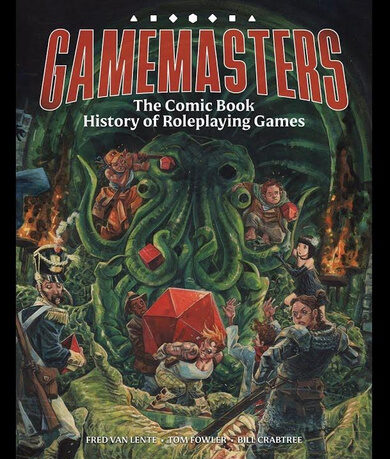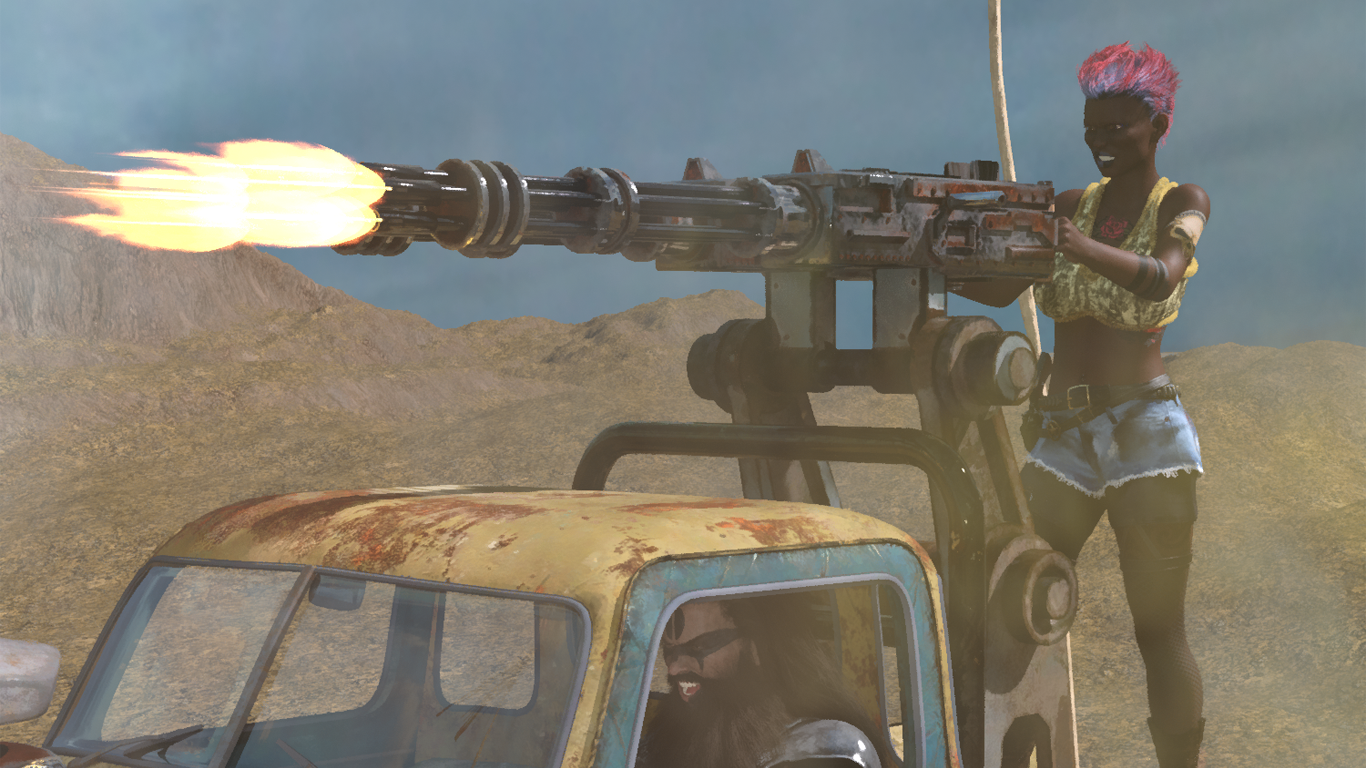We may earn money or products from the companies mentioned in this post.
Since it’s con season, this week I’m going to talk about running convention games. For the most part, the tricks to running a good convention game are the same as for any other game: make sure everyone has fun, give each character a chance to shine, and give the characters a stake in what’s going on and the players the illusion of free will. There are, however, a few special considerations to take into account when you’re running a convention game.
What’s The Purpose of the Game?
 Before you start thinking about the details, take a minute to decide what you want the players to get out of the game. This is especially important if you’re running a game in some official or semi-official capacity (for example, as a representative of the publisher or a member of an organized demo team). The ultimate goal is usually to convince people to buy the publisher’s products, but some demos may are more tightly focused than others. Are you trying to show off a particular strength of the system? Introduce players to a new setting? Showcase a particular adventure or supplement? Knowing what you’re trying to do with the game can be helpful when you design your adventure.
Before you start thinking about the details, take a minute to decide what you want the players to get out of the game. This is especially important if you’re running a game in some official or semi-official capacity (for example, as a representative of the publisher or a member of an organized demo team). The ultimate goal is usually to convince people to buy the publisher’s products, but some demos may are more tightly focused than others. Are you trying to show off a particular strength of the system? Introduce players to a new setting? Showcase a particular adventure or supplement? Knowing what you’re trying to do with the game can be helpful when you design your adventure.
Should You Use Pre-Gens?
Most players prefer making their own characters if they have a choice, but for convention games that’s not always practical. Pre-gens are a good choice if character creation is time-consuming (I’ve honestly seen a few convention games where players spent the entire session creating characters and never got to play); the adventure you’re running requires a specific mix of character types, skill sets, or pre-existing relationships; you’re running a game with pre-existing characters (for example, a Firefly game starring the Serenity crew); or the basic character archetypes for the game aren’t immediately obvious from either the setting or the rules system. If none of those restrictions apply to your game, it’s a matter of personal preference and GMing style. If character creation is simple and quick and you’re skilled enough at improvisation to adapt to whatever characters you end up with, let the players make their own characters.
Don’t Assume Familiarity
Players often use conventions as a chance to try out new games, so it’s best to assume that most of the people who sign up for your game will be first-time players. When preparing for your game, be sure to allow time for explaining the basic game premise and rules system. When plotting your adventure, assume that everything will take longer than it does with your normal group. Even if all your players have experience with the game and the setting, the fact that the players probably don’t know one another will make things take a little longer than they do with a group that’s been playing together for a while.
The assumption of unfamiliarity extends to the game setting as well. If the plot hinges on the PCs knowing that Doom Corn only grows in Zarakech, make sure they can get that information during the course of the adventure. Don’t assume that someone will have read The Complete Book of Dark Agriculture. Remember this is a one-shot, so concentrate more on presenting the flavor of the setting than getting all the details accurate. If you can’t remember something, make it up. Since there’s no continuity to worry about, it doesn’t matter if the PCs meet Bob the Thief in Swampville or Rob the Thief in Marshtown. Along the same lines, if the players do something that’s not entirely in keeping with the spirit of the game but still fun, go with fun–you can always point out afterwards that their actions probably wouldn’t fly in a typical campaign.
Go With The Flow
Unless you’re trying to show off a game setting where mood and atmosphere are vital (some horror games, for example), it’s usually best to follow the players’ lead when it comes to the tone of the game. Since convention games are one-shots, players often prefer them to have a lighter, more comedic tone than campaign play. Hobomancer is a great example: the setting described in the rulebook is kind of dark, but our convention demos always feature lots of humor and slapstick. That’s fine with us, because players are much more likely to remember a demo (and buy the game) if they enjoyed themselves, and it’s hard not to enjoy yourself when you can’t stop laughing. If players decide to run their own Hobomancer game, they can decide whether they want to play the more serious game described in the book or something more in line with the convention demos.
Other Helpful Hints
- Prepare cheat sheets with basic rules, bullet lists with important world information, and other things the players might need to reference.
- If you use pre-gens, include all the rules the players will need on the character sheet (or on additional sheets if the character sheet doesn’t have room for things like special ability rules or spell descriptions). That way the players don’t have to flip through rulebooks to find out what their character can do.
- Bring extra dice, pencils, and other accessories in case the players don’t have their own. Extra rulebooks are also good if you’ve got them.
- At the beginning of the session, let the players know that there will be scheduled breaks and ask them to stay at the table until a break is called unless there’s an emergency. Having players constantly leaving and coming back can slow down the game.
- The players paid to be at the convention (and may have paid an additional fee to play the game) and the con is expecting you to entertain these people for at least most of the scheduled time slot. They might have even given you a free or discounted badge based on that expectation. That being the case, it’s generally bad form to kill characters off early in the game without giving the player a chance to continue playing (either a new character or a resurrected/cloned version of the original character).
- There are exceptions to the “no kill” rule: (1) For some tournament games, the event rules supercede player enjoyment and good storytelling; (2) If a player needs to leave before the game is set to end, it doesn’t hurt to give him a meaningful or heroic death; (3) If a player is ruining everyone else’s enjoyment of the game, it’s completely acceptable to get rid of him, though it’s best to give the problem player at least one warning before you declare that his character just dropped dead from a brain aneurysm .





